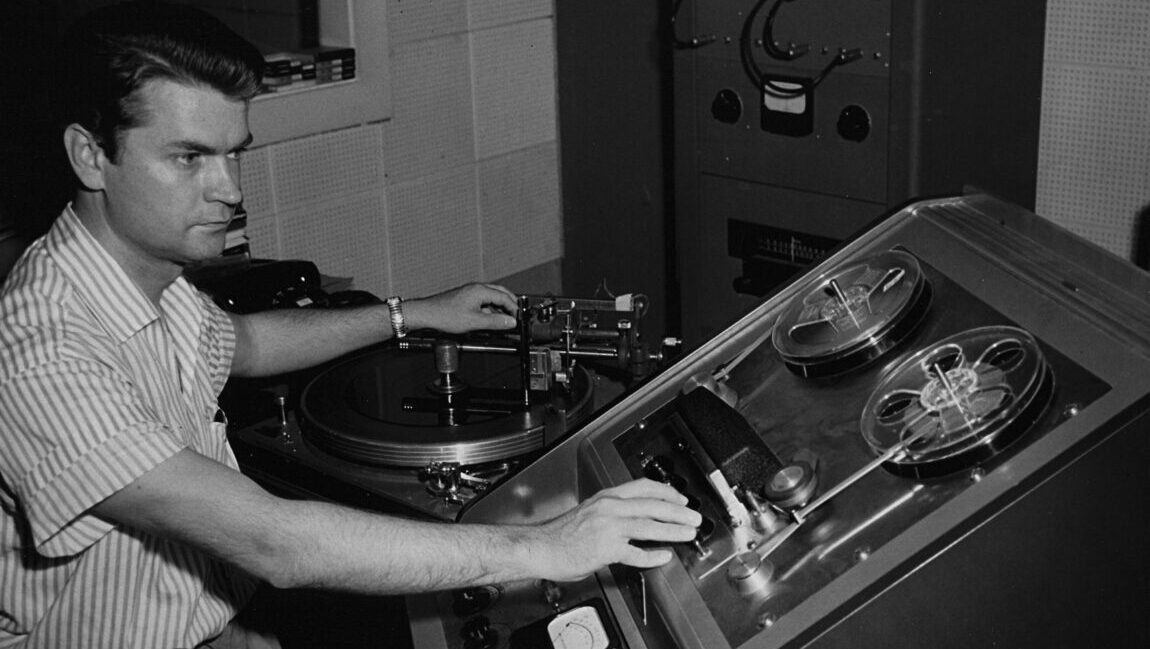An oft-stated yet just as oft-forgotten fact about Harry Smith’s Anthology of American Folk Music? Chronicle of backwoods American weirdness though it may be, it’s also a unique relic of doe-eyed commercial aspiration. Its contents were assembled not from field recordings but from actual records cut in quasi-professional studios and intended, at least on some level, to sell. That the songs are product does not diminish their purity or sand away any of their rough edges, nor does it render the collection inauthentic as a uniquely American travelogue; after all, commercial appeal is as much a part of our folklore as anything. Sam Phillips: The Man Who Invented Rock ’N’ Roll is every bit as vivid a reckoning with American song as that classic box set, and just as rich in idiosyncrasy. It even boasts many of the same formal obsessions, dipping deep into gutbucket blues and wailing church music. The key aesthetic difference is the man who gives the album its name and its focus: Sam Phillips was an ace talent scout and keen disciple of an American folklore that Harry Smith would doubtless have loved, but he was also a record executive who knew what made popular songs kick, what gave them their hooks, what made them unique — in a word, what made them sell. And so this collection of songs that Phillips midwifed — almost all recorded between 1950 and 1961 — is peerless as a compendium of weird and wooly Americana as filtered through Phillips’s ear for mass appeal, irrreplicable little rambles, campfire songs, tall tales, shaggy dog stories, jailhouse laments, drinking songs, myths, legends, novelties, and sock hops that are rooted in ancient soil but cast their eyes onto the wide-open commercial landscape of Eisenhower’s era of postwar prosperity.
Decades after, these recordings still sparkle with life and spontaneity; the performers all sound like real people, even the ones long known as legends.
The 55 songs here were hand-picked by Peter Guaralnick, and function as a sort of soundtrack to his Phillips biography of the same name; they’re assembled here not in chronological order nor according to theme (a la Smith), which places the focus not on any sense of Phillips’ evolution as a producer but rather on his unerring instincts as a talent scout and curator. A side benefit of this is that it allows familiar songs to be heard in a fresh context: The giants on this set are Elvis and Jerry Lee, each represented by several Sun standards you know by heart; there are a couple of Roy Orbison tunes and, curiously, just two from Johnny Cash (though they happen to be “Big River” and “Hey Porter,” strong contenders for his best Sun single). There are a few Howlin’ Wolf songs — a guy not as often associated with Phillips, who discovered and championed him — and an early B.B. King jam. Carl Perkins is here, of course, and even an uncredited Ike Turner. But the real pleasures of the set are in how a Howlin’ Wolf single is split down the middle by a sweet doo-wop spiritual from The Prisonaires; by Joe Hill Louis caking on the grime for an utterly unhinged electric blues that feels like punk in its anarchic spirit, which of course segues into a couple of soaring gospel numbers by church singers you’ve never heard of before. A couple of Jimmy and Walter songs are stacked together to maximize momentum; Jimmy DeBerry wails the blues over a weird falling-down-the-stairs rhythm on “Time Has Made a Change”; Warren Smith pours all of his considerable conviction into a fundamentally silly, vaguely bawdy song called “Miss Froggie” (as in, “I got a gal shaped just like a frog/I found her drinking muddy water, sleeping in a hollow log”). You may not know that Sleepy John Estes — who’s also on the Harry Smith set by the way — recorded with Sam, a nasty little joint called “Rats in My Kitchen,” which contrasts nicely with Charlie Rich’s smooth, proto-countrypolitan “Sittin’ and Thinkin’” just a few songs later. The Harmonica Frank selection is weird to the point of unclassifiable, while Roscoe Gordon’s “Booted” is R&B so irresistible it could pass for a Ray Charles cover. Even Carl Perkins’s “Turn Around” may be surprising for those who don’t realize that he started off singing hard country; meanwhile, Jerry Lee’s got a whole lotta shakin’ goin’ on, Orbison rocks steady, and Elvis is there with “Mystery Train,” “That’s All Right” and “Tryin’ to Get to You.” Decades after, these recordings still sparkle with life and spontaneity; the performers all sound like real people, even the ones long known as legends. This isn’t just a virtuosic testimony to Sam Phillips, but a treasure trove of Americana as essential as any other — and a killer, compulsively playable party record, to boot. Why wouldn’t a person buy a collection like this?







